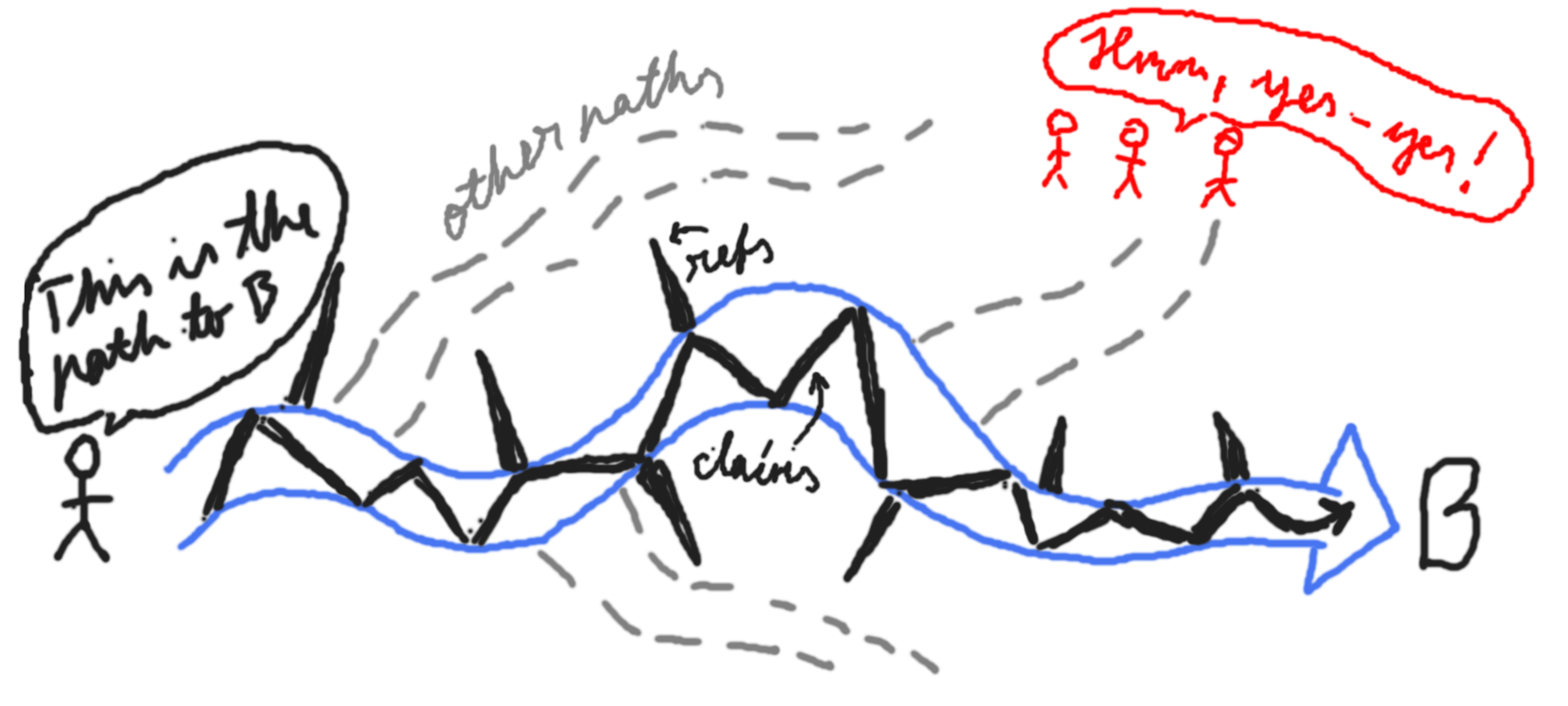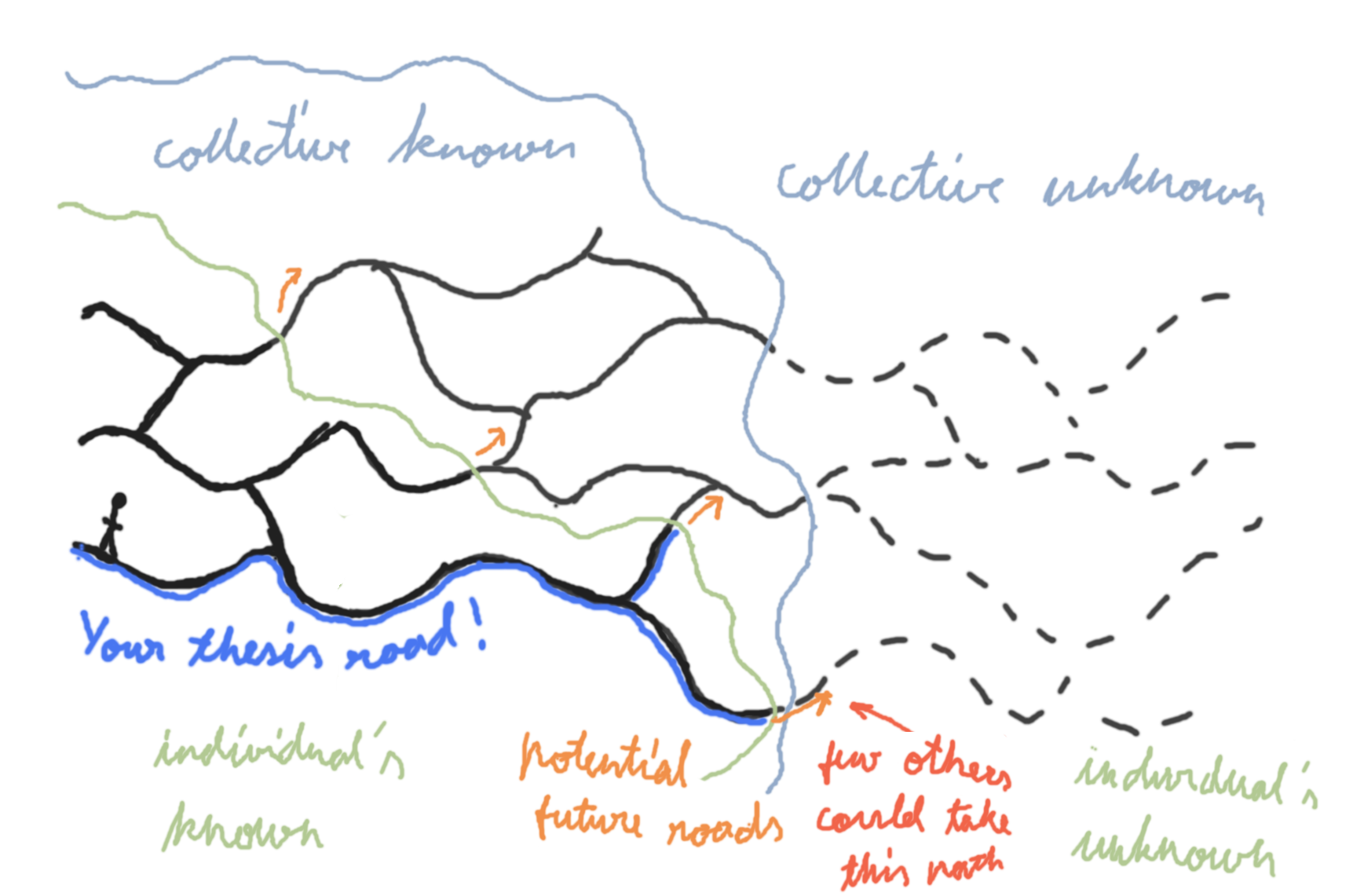When you have completed your journey, you show your discoveries to other adventurers. They will estimate how difficult a journey you faced, how well you have described the taken path in your map, and does your map fit nicely to the catalogue with the other maps of the same region.
Defending
Certainly the journey and its discoveries are yours and thus it may be difficult for others to understand the challenges you actually faced and the importance of the map you provide. This is why you will have an experienced reviewer to assess the quality of your result. That reviewer has travelled many similar paths and likely even in the same region of the unknown. This means that they know well what monsters lurk in that area and try to find from your work, how did you overcome them. During the defense you can additionally explain the area you explored and tell everyone about the value you found there. Besides the reviewer there is a committee of the most seasoned explorers to make sure everything is fair and you are assessed correctly.

Grading
If you successfully defend your thesis, you will be awarded with a grade, which indicates roughly the level of the challenge you took, how you explored the unknown, how well your map describes it and how do you convey it to other people. As with any adventure, I like to say that at least one grade level here is determined by luck. Different circumstances out of your control will always play a role in your fate. That is why it is often good to be prepared for a somewhat more troublesome situation than a neutral stance would indicate. So in order to more likely get an A, you should try to aim for at least A+ or whatever grade would come above A. In a number of universities the grade A is actually only up to 90% and after that there is S, O, TT or some other grade, which stands for a very remarkable or outstanding result. In our university A is often considered outstanding, so if you desire an A, then aim for something beyond outstanding. It also makes you more stronger and opens up a lot more doors for your future. But regardless, getting a good (C) or very good (B) result is also, well, good.
The important thing to remember is to try to work on the level that you feel you are worth. You have learned 3, 5 or more years of computer science. Utilize everything you have acquired during those studies and more! Try to be someone worth the degree and, if luck has it, also the grade you will receive. If you get a grade less than you think you are worth, then keep it in mind to do better in the future endeavours!
Your Future
After defending your thesis, you have the best knowledge of the road you walked on. This gives you excellent opportunities to continue adventuring in the chosen area, pushing the boundary further and discovering new challenges with each journey. Where you undertake those journeys is up to you. When you graduated at a BSc level, then I recommend you to consider also doing MSc in some not too distant future. Like discussed before the MSc level opens up a lot of cool paths for you to discover. The more deep adventures you take, the greater the rewards are.
However, if you do find that going forward has become too much then another way is to go laterally. It is natural that your path will curve around different obstacles too great to face at some given moment. So you might also consider to take the treasures of your current area and venture into a neighboring area to make yourself richer. Just do not underestimate the value of your previous discoveries and advances you have made. Whatever paths you take, in higher education you always become a member of a very small group of people who know those roads well and can lead others along them.

Thank you for reading through this article series. Hopefully it helped you understand the endeavour called thesis and how you could approach it. Godspeed!



